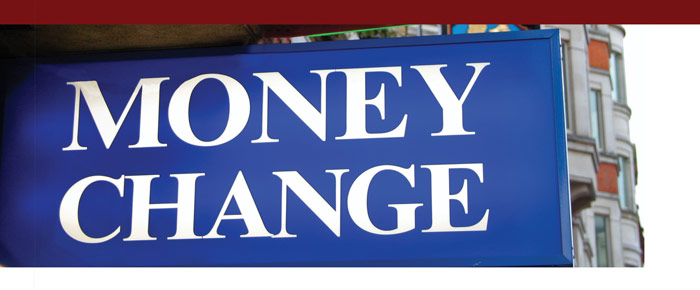
On July 18, 2011, the U.S. Treasury Department Financial Crimes Enforcement Network (FinCEN) issued a final rule clarifying the definition of a Money Services Business (MSB) and applying Bank Secrecy Act (BSA) regulations to foreign entities doing business in the United States. Under the rule, an MSB must comply with BSA anti-money laundering regulations if it conducts $1,000 worth of transactions per person per day. That threshold applies to all categories of MSBs except money transmitters, which are subject to BSA rules if they engage in money transmission of any amount. The rule also replaces the term "dealer in foreign exchange" with the new term "currency dealer or exchanger," a term used to include the exchange of instruments other than currency as a category of MSB. These provisions of the rule greatly expand the regulations and requirements placed on foreign MSBs.
Levels the Playing Field
It no longer matters if an entity is foreign or domestic, registered or unlicensed or even if it considers itself a business. If the organization meets the MSB definition outlined in the new rule it is subject to BSA and other anti-money laundering (AML) regulations.
"Whether a person is subject to regulation as an MSB does not depend on factors such as whether the person is licensed as a business, has employees, or is engaged in a for-profit venture," release from FinCEN stated when the rule was released. "This rule clarifies that it is the activities performed that cause a person to be categorized as an MSB subject to anti-money laundering rules."
When it comes to money laundering, the Internet is often referred to as the Wild West
The rule also extends the scope of those covered under the BSA and AML laws to entities who provide money services to the United States even if they only operate in the virtual world. "An entity qualifies as an MSB based on its activity within the United States, not the physical presence of one or more of its agents, agencies, branches, or offices in the United States," according to a release from FinCEN. "This requirement arose out of the recognition that the Internet and other technological advances make it increasingly possible for persons to offer MSB services in the United States from foreign locations. FinCEN seeks to ensure that the BSA rules apply to all persons engaging in covered activities within the United States, regardless of their physical location."
In addition to adhering to all requirements outlined in the BSA, foreign MSBs doing business in the United States must designate a U.S.-based agent to serve as a point of contact for law enforcement and regulatory agents. Additionally, the U.S. agent is responsible for keeping client lists and transactional data.
"The rule puts substance over form," said Jeff Ross, senior vice president, BSA/AML/OFAC officer at Green Dot Corporation and former U.S. Department of the Treasury senior advisor in the Office for Terrorist Financing and Financial Crimes. "It doesn't matter how you are organized or where you are located. It matters how you act, the services you provide. If you are a foreign MSB engaging in business in the United States it is a perfectly reasonable requirement that you must meet the regulations."
Provides Increased Access to Law Enforcement
When it comes to money laundering, the Internet is often referred to as the Wild West. The new rule brings a little more law and order to the cyber frontier. If foreign MSBs adhere to the requirements, the rule will make law enforcement's job a little easier when investigating cross-border crimes or those that take place in the virtual world. By expanding the definition of those subject to BSA regulations and record keeping and reporting requirements, it will provide U.S. law enforcement agents with access to additional information needed for enforcement actions.
"If the international MSBs operate as they are supposed to under the rule it will be good for law enforcement," said Dennis Lormel, president, DML Associates LLC and former chief of the Federal Bureau of Investigation Financial Crimes Program. "Having access to the information will be a great benefit for investigations if these businesses do maintain the records the way they are supposed to be kept."
While the data may be a boon for law enforcement, the record keeping requirements could present a monumental logistical challenge for foreign MSBs. Meeting this mandate is a case of easier said than done, especially for companies with massive networks of agents or those who operate mainly through the Internet. Disseminating information about the requirements to front-line agents; training employees, agents and business partners; and implementing record keeping systems will be a formidable task.
"I don't see these types of business maintaining the (required) records the way they are supposed to be kept," Lormel said. "At this point they don't have the capacity and training to maintain their records. When you get down to the agent level, I have no confidence in their ability to maintain the records. It is going to be very difficult for these companies because there are so many agents."
Bank Relationships May Change
There is often an uneasy relationship between MSBs and their banks. In some cases, banks unsure of the MSB's customer base continue to close existing MSB accounts or refuse to open new ones. The new rule could exacerbate this problem.
"It might be more costly for the bank to ensure the foreign MSBs meet the BSA requirements," Lormel said. "And some banks might choose not to do business with the MSB out of concern that the account could cause regulatory issues. Right or wrong it could have an adverse impact for MSBs."
The concerns about the foreign MSBs can be alleviated if the bank includes the new requirements in its due diligence during account opening or in its account review process, according to Ross.
"It is just another question when you open an account," said Ross. "If the MSB must register, then they must provide the registration. If the MSB meets all the requirements, and there are no other issues with respect to the foreign MSB, there should be no impediment to the foreign MSB's ability to open or maintain the U.S. bank account. These new requirements shouldn't cause any additional roadblocks."
While debate goes on in the AML community, it will be months, if not years, before the final effects of the rule on foreign MSBs can be truly evaluated. The rule is effective 60 days after publication in the Federal Register and newly covered MSBs are required to comply within six months after that date.










